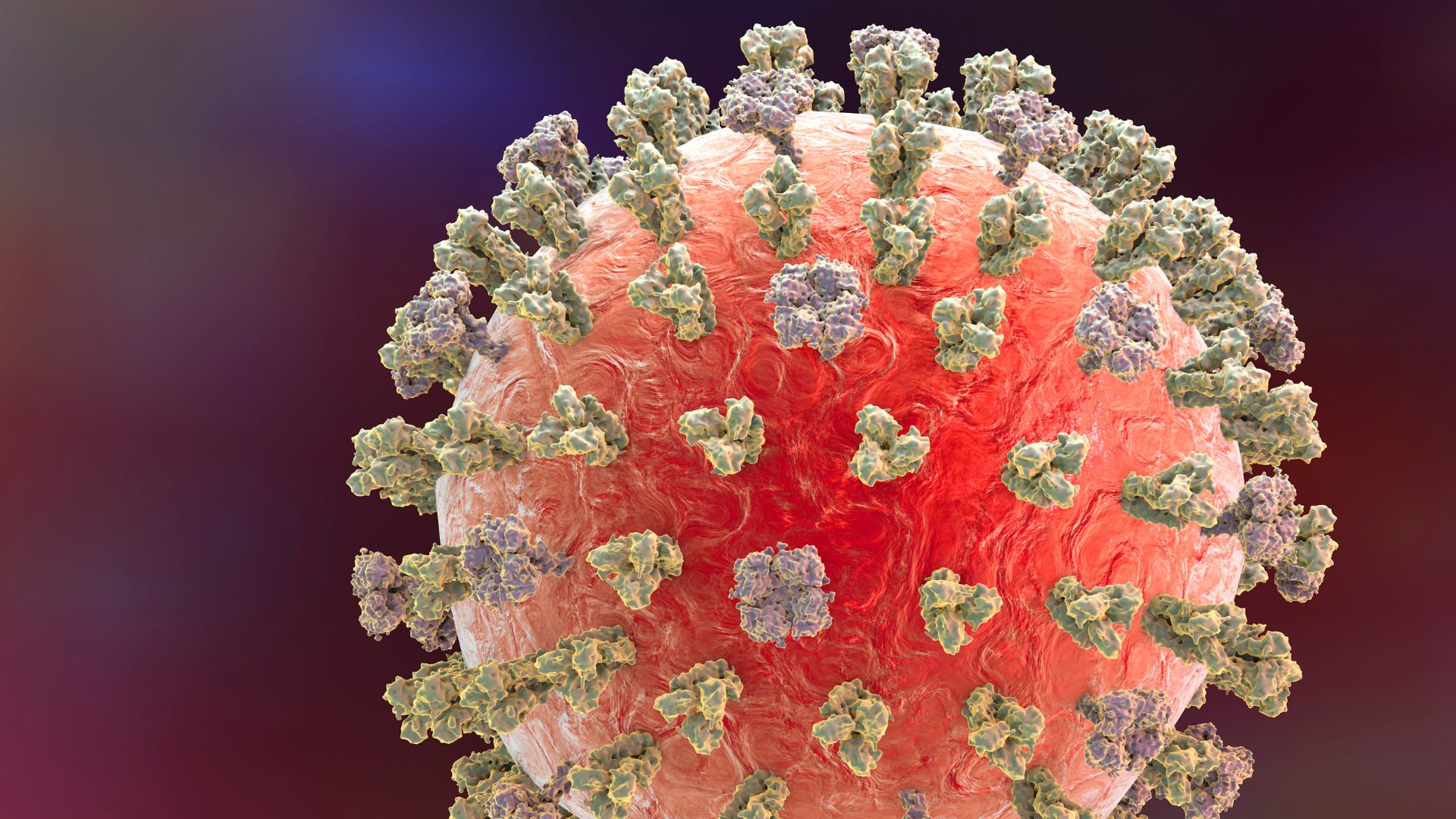Person in Louisiana hospitalized with H5N1 in nation's 1st severe case
A person in Louisiana has been hospitalized with the United States' first serious case of H5N1 bird flu, following 60 milder cases this year.

Editor's note: The patient described in this case has died, officials announced Jan. 6.
A person in Louisiana has been hospitalized with H5N1 bird flu, marking the United States' first severe case of the illness.
In a statement released Wednesday (Dec. 18), the Centers for Disease Control and Prevention (CDC) noted that, in total, 61 people in the U.S. have had a confirmed case of H5N1 this year. Of the previous 60 cases, 37 caught the virus from dairy cows, 21 from poultry, and two from unknown sources. The presumptive case was first announced by Louisiana Friday and was confirmed by CDC tests the same day.
Notably, however, the virus in the Louisiana patient differs genetically from the virus spreading among dairy cows.
The strain circulating in dairy cows is known as the "B3.13 genotype," while the one that sickened the Louisiana patient is the "D1.1 genotype." The latter is known to be circulating among wild birds and poultry in the United States and Canada. Recently, D1.1 infected poultry workers in Washington state, who had mild cases, and a teen in British Columbia, who had a severe case that required intensive care.
The exact source of the teen's infection has not been identified, but genetic testing suggested the virus is genetically similar to a strain detected in wild birds in the Fraser Valley area in southwestern British Columbia.
Related: How to avoid bird flu
Sign up for the Live Science daily newsletter now
Get the world’s most fascinating discoveries delivered straight to your inbox.
The source of the Louisiana patient's infection is also unknown, but birds are suspected.
"While an investigation into the source of the infection in Louisiana is ongoing, it has been determined that the patient had exposure to sick and dead birds in backyard flocks," the CDC noted. "This is the first case of H5N1 bird flu in the U.S. that has been linked to exposure to a backyard flock."
The CDC added that seeing a severe case of H5N1 is not totally unexpected. Historically, of the over 900 people known to have caught the virus worldwide, more than half have died. But these deaths have affected people outside the U.S. and have involved H5N1 strains with different genetic traits that might help explain their virulence.
The CDC still considers the risk of H5N1 infection among the general public to be low. That's partly because there is still no evidence of the virus spreading from one person to another.
A recent study — albeit one that focused on an H5N1 strain from a cow — suggested that the virus may not need to mutate very much to start spreading between people. So officials will continue to monitor the virus's spread from all animals while also encouraging people at the highest risk of exposure to take precautions.
Following the Louisiana case, the CDC emphasized that "people with work or recreational exposures to infected animals are at higher risk of infection and should follow CDC's recommended precautions when around animals that are infected or potentially infected with H5N1 avian influenza virus.
"This means that backyard flock owners, hunters and other bird enthusiasts should also take precautions," the agency statement noted.
Dr. Demetre Daskalakis, director of the CDC's National Center for Immunization and Respiratory Diseases, told reporters at a news conference that the Louisiana patient was hospitalized with flu symptoms, according to the University of Minnesota's Center for Infectious Disease Research & Policy.
Daskalakis deferred to Louisiana health officials to share further details about the patient, should they choose. The health department has not yet shared specifics of the patient's condition due to privacy concerns and the fact that the investigation into the case is ongoing.
Disclaimer
This article is for informational purposes only and is not meant to offer medical advice.
Ever wonder why some people build muscle more easily than others or why freckles come out in the sun? Send us your questions about how the human body works to community@livescience.com with the subject line "Health Desk Q," and you may see your question answered on the website!

Nicoletta Lanese is the health channel editor at Live Science and was previously a news editor and staff writer at the site. She holds a graduate certificate in science communication from UC Santa Cruz and degrees in neuroscience and dance from the University of Florida. Her work has appeared in The Scientist, Science News, the Mercury News, Mongabay and Stanford Medicine Magazine, among other outlets. Based in NYC, she also remains heavily involved in dance and performs in local choreographers' work.









